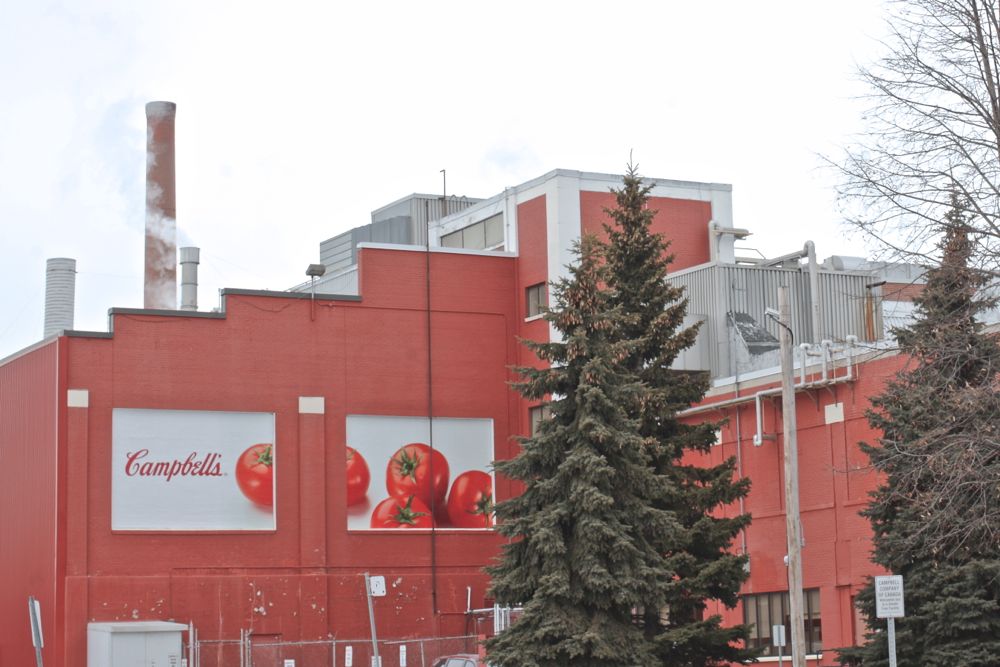Campbell Soup Co. will call a halt to all Canadian soup and broth production by mid-2019 when it closes the doors on its Toronto manufacturing plant.
The Camden, N.J. company’s Canadian arm announced Wednesday it will close the plant in phases over a period of up to 18 months and move its production to three U.S. facilities.
The Toronto plant, on Birmingham Street in Etobicoke, is the oldest facility in Campbell’s “thermal” plant network, having opened in 1931.
“Due to its size and age, the Toronto plant cannot be retrofit in a way that is competitively viable,” the company said.
Read Also

Senft to step down as CEO of Seeds Canada
Barry Senft, the founding CEO of the five-year-old Seeds Canada organization is stepping down as of January 2026.
The company in 2010 had billed the Toronto plant as using over 42 million lbs. of fresh vegetables per year, including potatoes, carrots, mushrooms, celery and onions, to produce over 182,000 tonnes of soup products.
But “productivity improvements” in the soup and broth business, along with sales volume declines of canned soup in North America, are among the factors leading to “excess capacity” in Campbell’s North American thermal supply chain, the company said Wednesday.
“We are operating in an increasingly challenging environment as our industry’s consumer and retail landscapes continue to change dramatically,” Mark Alexander, president for Campbell’s Americas simple meals and beverages division, said in a release.
“Despite this decision, Canada is important to Campbell,” Campbell Canada president Ana Dominguez said in the same release, after informing employees of the decision at a plant meeting. “We are remaining in Canada and will continue to make important contributions to the food industry in this country.”
About 380 manufacturing-related positions at the plant will be affected, the company said, while “nearly 200” Toronto staff will move to a new head office location in the Greater Toronto Area.
Selection is “underway” for a new site, which will include a new “Food Innovation Centre,” Campbell said. Despite exiting manufacturing in Canada, the company “will continue to make soup and broth recipes tailored to Canadian tastes.”
The Etobicoke plant was the first — and now the last — of Campbell’s major Canadian manufacturing sites. In 2009 the company shut down its frozen soup and ramen noodle operations at Listowel, Ont.; plants at Portage la Prairie, Man. and Chatham, Ont. closed in 1990 and 1993 respectively.
Campbell said Wednesday its decision to stop manufacturing in Toronto is part of a multi-year “cost savings initiative” announced in early 2015. At the end of October last year, it said, the initiative was generating $345 million per year in annual cost savings.
In a filing Wednesday with the U.S. Securities and Exchange Commission, Campbell announced the Toronto plant closure and a move to “optimize” its information technology infrastructure by moving certain applications to a cloud-based platform.
For those two moves, Campbell said it would authorize pre-tax costs of $125 million to $140 million in total, including about $30 million in severance pay and benefits; $65 million in “accelerated depreciation of property, plant and equipment” and $30 million to $45 million in “implementation costs.”
Production from the Toronto plant will move to Campbell facilities at Maxton, North Carolina, about 160 km southeast of Charlotte; Napoleon, Ohio, about 50 km southwest of Toledo; and Paris, Texas, about 140 km northeast of Dallas. — AGCanada.com Network




















